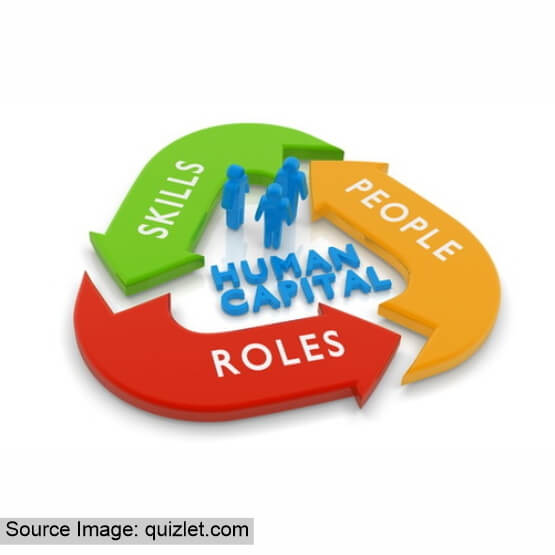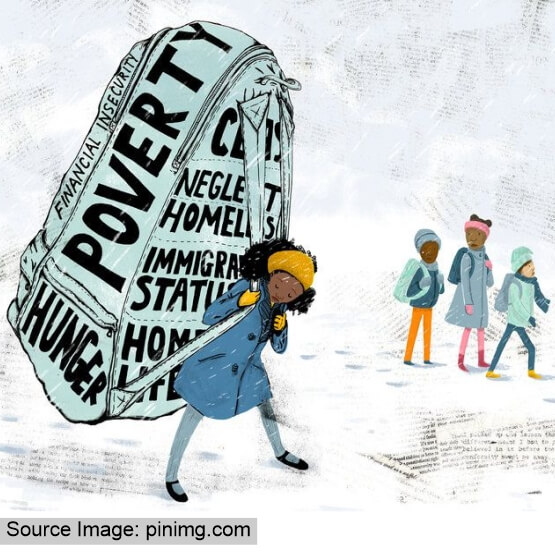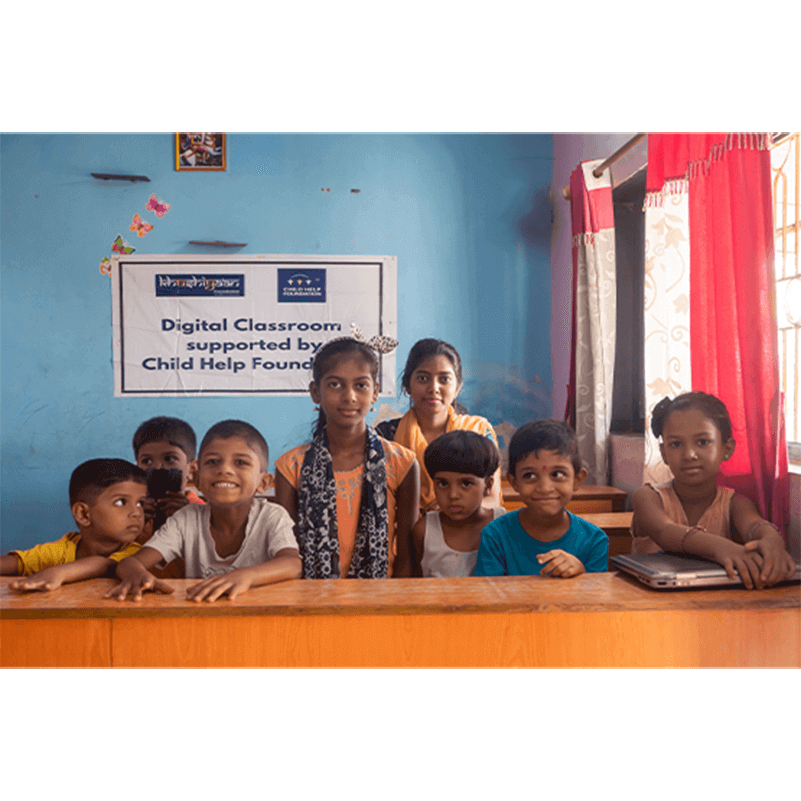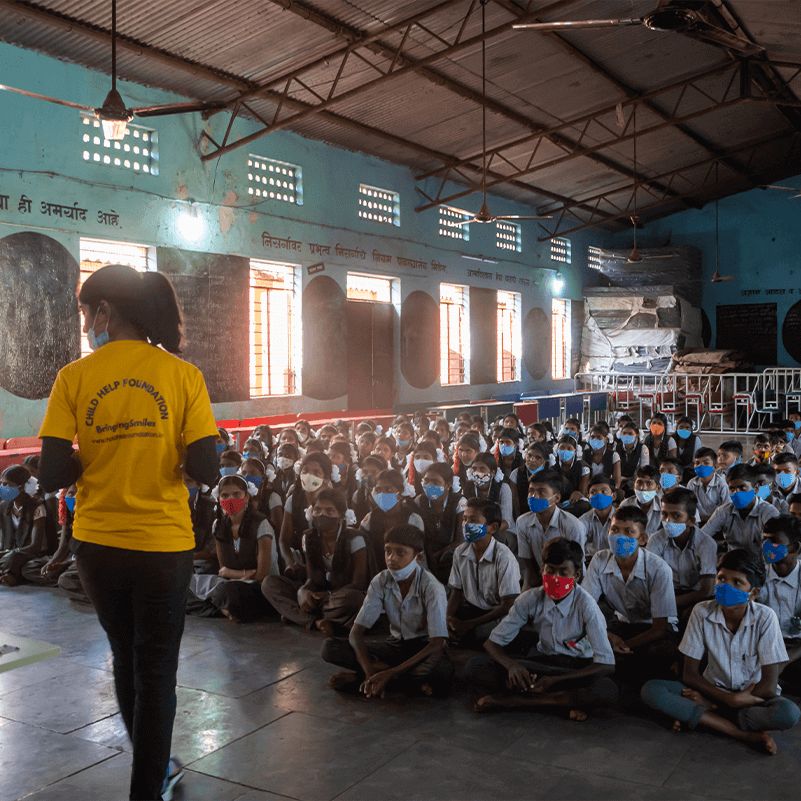-Bob Taft
Education is one of the most important aspects of development. It has a significant impact on a country's economic prosperity. Without considerable investments in human capital, no country can achieve long-term economic progress.
Education broadens people's outlook on themselves and the world around them. It enhances their quality of life and provides a variety of social benefits to both people and society. It is critical for ensuring economic and social progress. It helps in the development of human capital, productivity, creativity, poverty reduction, encourages entrepreneurship, technological advancements, women empowerment, social development, health awareness, and other areas where economic development can be boosted. These different roles of education in India's Economic Development are addressed below.-
Human Capital Formation:

Human capital is directly related to human development. When there is human development, qualitative and quantitative advances in the nation are unavoidable. Human capital is an instrument for promoting the comprehensive development of the nation.
Due to qualitative improvements in each generation, India's rate of human capital formation has steadily increased since independence. The third generation of India's population is actively working in the country's workforce in the second decade of the 21st century. It is the most qualitative superior human resource.
The third generation has boosted India's service industry and improved the Invisible Balance of Payments with the export of financial services, software services, and tourism services. The fast growth of the Indian economy in response to improvements in the service sector demonstrates India's cumulative human capital growth.
Recently, the Indian government has taken steps to provide more job-oriented education in order to increase the supply of trained employees and push the country's economy forward. Prime Minister Narendra Modi announced the 'Kaushal Bharat, Kushal Bharat' project. The government has established a goal for 400 million citizens by 2022 to enable them to find work under this initiative. Various programs, such as the Pradhan Mantri Vikas Yojana (PMKVY), the National Policy for Skill Development and Entrepreneurship 2015, the Skill Loan Scheme, and the National Skill Development Mission have been launched.
-
Productivity:

output and exports. It is a key component of a system's ability to effectively borrow foreign technology. Health and nutrition, as well as primary and secondary education, all contribute to increasing worker productivity in both rural and urban areas. Secondary education helps in the development of talents and managerial capabilities. tertiary education contributes to the advancement of basic science, the proper selection of technology imports, and the adoption and development of technologies in the domestic markets. Both tertiary and secondary education provide significant contributions to the formation of key government institutions, the legal system, and the financial system.
India is no less in this aspect. India has progressed to the point that, as a developing country, it has been able to reach such a high level of education that it is now one of the world's top countries, boosting its economic development day by day. In numerous categories, such as nuclear weapons and marine equipment, India ranks third in the world.
This success is largely owing to education's contribution to these fields. If it continues to improve at the same rate, our country's economic development will undoubtedly accelerate. Agriculture and Industry give evidence that their productivity has increased significantly as a result of education. Farmers can now use new technologies to produce more than they could previously with old methods. The same with the industrial sector. There is increasing industrialization when new equipment is introduced. Educated labour. and workers are capable of properly applying current techniques and equipment, allowing for increased output and economic progress. This brings great economic development.
-
Reduces Poverty:

Poverty is a huge threat to human survival in modern times, particularly in developing countries. The most effective way to reduce poverty is to invest in education. As history shows, no country can prosper if its citizens are not educated. Poverty and education are adversely connected. Education indirectly helps in the fulfilment of fundamental necessities such as water and sanitation, access to health care, and housing, as well as influencing women's behaviour in fertility decisions and family planning.
Education, in every sense, is one of the most important aspects of attaining long-term economic growth through human capital investment. Education lays the groundwork for reducing poverty. It is the key to boosting economic efficiency and social consistency by raising the workforce's worth and efficiency and therefore lifting the poor out of poverty. Technical and vocational education and training can provide marginalised people with job opportunities while also integrating important learning skills. It can assist young people in finding work in green industries such as alternative energy, recycling, agriculture, transportation, and communication.
-
Women Empowerment:

“A society that does not give importance to education cannot progress. Let there be any Government, it must have the vision to make India shine in the field of education.”
Prime Minister Narendra ModiOver the last several decades, women's empowerment has become a hot topic all over the world, especially in India.Inequalities between men and women, as well as gender discrimination, have long been a topic of concern across the world. As a result, women's desire for equality with men is a worldwide phenomenon. Purdah (veil system), female infanticide, child marriage, sati system (self-immolation by women with their husbands), dowry system, and the status of lifelong widowhood were all abolished or significantly reduced in India after independence due to legislative efforts. In India, two acts have been passed to liberate women. Protection of Women from Domestic Violence Act of 2005 and Compulsory Marriage Registration Act of 2006. The Domestic Violence Act addresses both physical and emotional abuse. Even among the affluent, there was a time when women's education was not a priority.
An increasing number of women have been joining the economic sphere, seeking paid labour (remunerative jobs) outside the home, during the last quarter of the twentieth century, and especially with the opening up of the economy, post-1991. Women are increasingly contributing to the economy as employees, consumers, entrepreneurs, managers, and investors. Women may now be found in practically every industry, including architecture, law, financial services, engineering, medicine, and information technology. They've also gone into service jobs like a nurse, beautician, salesperson, waitress, and so on.
The need for an educated female labour force has expanded practically everywhere due to the high speed of economic growth. Although women earn as much as their husbands, their work contributes significantly to the family and offers them an economic advantage over families with only one breadwinner. Despite the disadvantages and challenges that still exist, Indian women (particularly educated women) are no longer hesitant or apologetic about asserting their rights and visibility inside the household, at work, in public spaces, and public discussion.
-
Social Development:

“Education is the most powerful weapon you can use to change the world.”
-Nelson Mandela.Education has always had the power to move a society forward from a dark place to a place of optimism. It serves as a vital tool for social and economic growth. Superstitions, the practice of bad culture, the dowry system, gender biases, and other barriers to society's progress have a detrimental impact on the society's foundation. Education paves the path to overcome such obstacles. In a developing country like India, more than half of the population lives in rural regions. Almost all of India's states, such as Bihar, Assam, Uttar Pradesh, and Rajasthan, are still underdeveloped. Even from space, India is renowned to have the biggest slum areas, which can be seen in Mumbai. These people are backward in every sense, even though the country is developing. If these people were given access to education, they would become literate and contribute significantly to the growth of the economy. These people's knowledge, abilities, and perceptions can be enhanced by educational programs, mass media, and other means. People benefit from these arrangements because their social and economic conditions improve, enhancing their standard of living. People benefit from these arrangements because their social and economic conditions improve, enhancing their standard of living. These procedures, without a doubt, need a long gestation time. However, we are constantly conscious of the fact that patience yields a positive result. As a result, over a longer time of societal transformation, not only will individuals improve themselves, but they will also contribute to the growth of a nation's economy.
-
Health Awareness:

India is a densely populated country where a huge percentage of the population lacks access to basic education and health care. In comparison to metropolitan areas, the situation in rural villages is more complicated. Their houses are poorly established and lack adequate water and electrical supplies. They manage to get a little water from remote sources and rarely think about showering, cleaning their clothes, or renovating their shelters. In addition to their terrible socioeconomic situation, a lack of knowledge and public awareness is a key cause of their suffering.
People's minds can be imparted with health awareness through education.
-
To enhance patients' knowledge and attitudes regarding illness detection, treatment, and control.
-
To promote educational materials for the family and community that are necessary for healthy living behaviours.
-
To raise public awareness about the dangers of drinking, smoking, and other drugs, among other things.
The above ideas emphasise the development of persons who are capable of handling any crucial situation.
The following are the factors that influence educational effectiveness:To enhance disease control, all health professionals' knowledge, attitude, and abilities about signs, symptoms, and management procedures for health threats should be improved.
To encourage health care providers to treat patients with care.
To create resources and materials for health professionals to utilise.
To encourage research throughout the world to reduce health risks.
To promote continuing education programs that provide correct information on disease diagnosis and treatment.
Education in schools can also be an important tool for a country's economic development. Children are often referred to as a country's future.
As a result, educating their minds will contribute to national growth.
Many pharmaceutical businesses in India are currently developing new drugs to help individuals combat diseases such as swine flu, dengue fever, tuberculosis, cancer, and Ebola. -
Child Help Foundation's contribution to the Education and Economic Development of India:
Child Help Foundation (CHF) in the past few years has worked on the Pan India level toward the Sustainable Development Goals. As education is an important aspect of development for an individual as well as the nation, Child Help Foundation (CHF) is involved in a noble cause of providing primary education at the grassroots level to the economically backward sections of society.
We aim to provide all children with equal opportunity. Due to their socio-economic status, lack of access to schools, and their parents' poor regard for education, many underprivileged children in India do not receive a proper education. Education may not be able to solve all problems, but it is a means of transforming India from a "Developing Nation" to a "Developed Nation."
To uphold this vision, CHF has been providing scholarships to deserving students from disadvantaged backgrounds and children living in shelter homes all around India.
Several projects have been undertaken by CHF to support the Self-Reliant India initiative, which was launched by the government of India, for helping people and communities learn the ways to grow and benefit from the skills and techniques of the modern era.
Digital education had become important for every second person during the COVID times. It wasn't a difficult task in urban areas, but it was something very new in rural ones. CHF started the Digital Classroom to teach the tribal rural people to get into the habit of the new normal after the pandemic by using digital media.

Complex mathematical and scientific concepts are better understood when they are demonstrated in everyday situations. Therefore, CHF established Mini Science Centres in various schools, in villages across India to help students understand scientific and mathematical concepts with practical knowledge. Students are benefiting from models of scientific concepts such as gravitation, motion, reflection, and anatomy, as well as mathematical concepts such as algebraic expressions and geometry.
CHF has also established the Centre for Excellence Program with a focus on school development projects including the physical, academic, social, and mental needs of children.
India is on its way towards development, but illiteracy hinders the path of the bright future of the country. Many children show interest in learning, being educated and attending school, but due to a lack of access to education, they are unable to access proper knowledge.
Want to contribute to helping underprivileged children have an equal opportunity to receive an education? Visit our website and learn more about our work. You can contribute by donating or volunteering for the causes we support.
